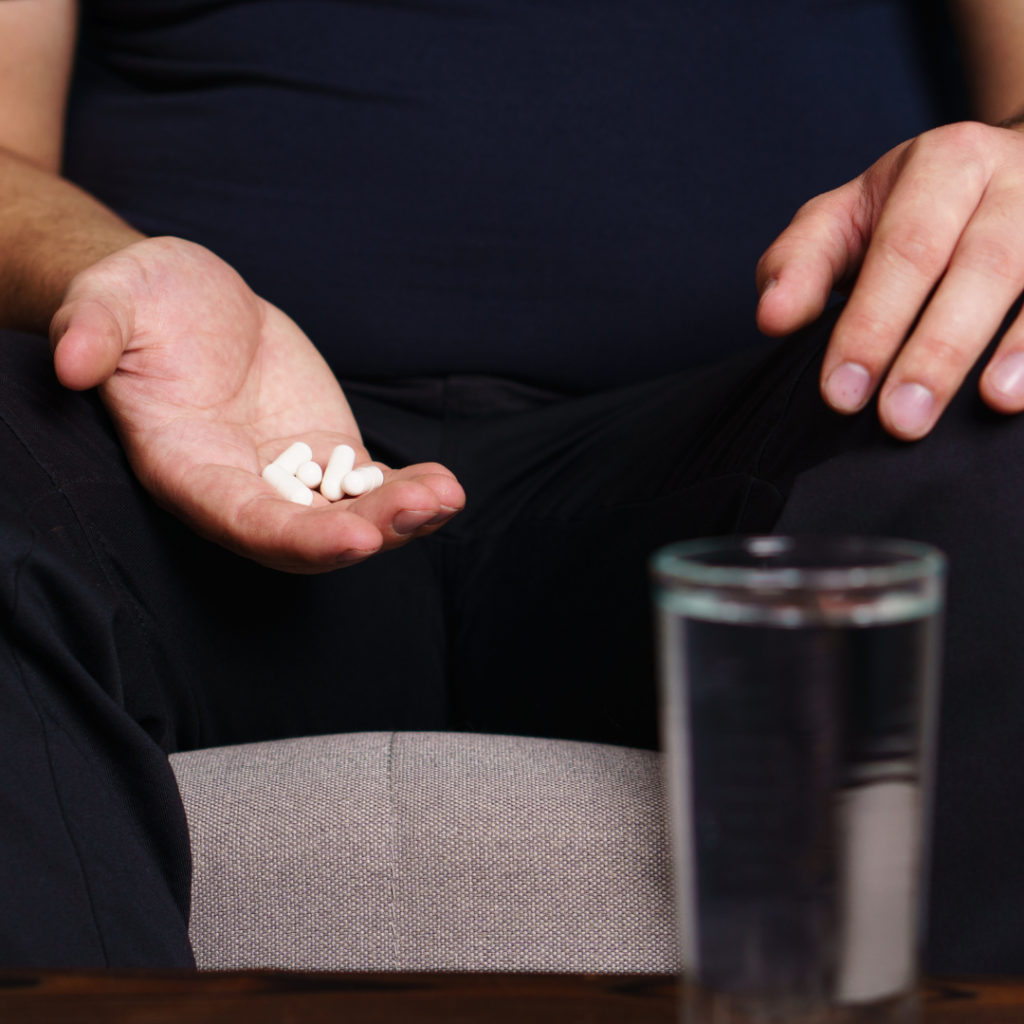Chronic pain affects over 50 million adults in the United States every year. From migraines to arthritis, fibromyalgia, and more, chronic pain can greatly impact one’s quality of life. If you are one of the millions of people suffering from chronic pain, you may be wondering if CBD (cannabidiol) could help provide relief for your symptoms. Keep reading to learn if CBD is right for treating chronic pain.
What is CBD?
CBD is one of over 100 chemical compounds known as cannabinoids found in the cannabis plant. The most well-known cannabinoid is THC, which causes the “high” associated with marijuana. Unlike THC, CBD will not make you high. CBD interacts with the body’s endocannabinoid system, which helps regulate various functions like immune response, communication between cells, appetite, memory, and more.
How Does CBD Work?
While more research is still needed, CBD is thought to work by reducing inflammation and interacting with neurotransmitters to potentially reduce the perception of pain in the brain. Studies have shown CBD may reduce chronic pain by impacting endocannabinoid receptor activity, reducing inflammation, and interacting with neurotransmitters.
Is CBD Legal?
Hemp-derived CBD containing less than 0.3% THC is legal at the federal level. However, some states have additional restrictions on CBD sales, so check your state laws. CBD derived from marijuana is still illegal federally and in most states. Only purchase CBD from reputable brands that can validate CBD and THC levels.
Types of Chronic Pain CBD
May Help With Early research shows promising results for CBD helping relieve many types of chronic pain, including:
● Arthritis – CBD may reduce joint inflammation and pain. Oral CBD spray called Sativex has been approved in several countries to treat arthritis pain.
● Multiple Sclerosis – Sativex spray has also shown effectiveness for reducing muscle spasms and pain in MS patients.
● Cancer Pain – CBD may help cancer patients manage chronic nausea, vomiting, and pain from chemotherapy and other treatments.
● Migraines – Research indicates CBD may potentially reduce migraine frequency and
symptoms like nausea.
● Fibromyalgia – CBD is thought to help ease fibromyalgia pain and fatigue symptoms.
● Neuropathy – Early studies show CBD applied topically may help relieve neuropathic pain.
● Chronic Back Pain – CBD’s anti-inflammatory properties may reduce back pain and
sciatic nerve pain.
How is CBD Used for Pain?
If you’re considering using CBD for chronic pain, there are several delivery formats to use:
● CBD Oil Tinctures – Taken under the tongue to be absorbed sublingually into the
bloodstream quickly. Easy to adjust serving sizes.
● Vaping – Inhaling CBD vape oils or cartridges provides almost instant effects but is not recommended for beginners.
● Edibles/Capsules – Ingestible CBD that must pass through the digestive system so takes longer to onset but offers longer-lasting effects.
● Topicals – CBD-infused lotions, creams, gels, and balms are best for localized pain relief when applied directly to the skin.
● Transdermal Patches – Adhesive patches applied to the skin provide a time-released measured dose over a longer period.
Choosing a Delivery Method
Consider your lifestyle habits, preferences, and pain symptoms when choosing a CBD delivery method. For example, chronic migraine sufferers may want fast relief from a vape pen or tincture. Those with joint pain may prefer applying a topical CBD cream directly to the affected areas. Transdermal patches provide steady low doses over time.
Dosage Considerations for Pain
There are no standard CBD doses. General dosage guidelines suggest starting with 1-6mg of CBD per 10 pounds of body weight. The optimal dosage for your chronic pain will depend on the severity of your symptoms. Start low at 10-20mg per day and increase by 5-10mg until you find relief. Some take up to 100mg or more per day for pain. Finding the right dosage requires patience as the effects are subtle.
Will I Get High from CBD?
No, you will not get high from CBD because it is non-intoxicating and does not contain enough THC to be impairing. However, some CBD products contain small traces of THC that could result in a positive drug test. Avoid full-spectrum products if this is a concern. CBD isolate contains zero THC.
How Long Until I Feel Effects for Pain Relief?
Unlike medications that offer immediate pain relief, CBD may take consistent use over several weeks before you notice a difference in your pain levels and symptoms. Give CBD at least 2-4 weeks to assess if it helps your chronic pain. Effects appear within 30 minutes to 2 hours after taking CBD and can last 4-6 hours. This is why regular doses are needed to control pain.
Start With High-Quality CBD
With the rise in CBD popularity, low-quality products from questionable brands have flooded the market. Only purchase CBD from companies that provide third-party lab reports showing precisely what is in their CBD products. Look for organic, U.S.-grown hemp, and avoid any products that make unfounded health claims.
Possible Side Effects and Safety Concerns
While generally well tolerated, common CBD side effects can include nausea, fatigue, irritability, appetite changes, and diarrhea. CBD may also interact with certain medications or supplements.
Consult your doctor before trying CBD, especially if taking prescription medications. Avoid CBD before activities requiring alertness like driving. While rare, some people report liver issues from CBD. Tell your doctor about any negative side effects.
Other Tips for Trying CBD for Pain
Here are a few other tips to follow when first trying CBD for chronic pain:
● Track symptoms and dosage timing in a journal to optimize your regimen.
● Purchase a few different CBD delivery formats and alternate based on pain needs.
● Start by substituting CBD for one medication or supplement to assess its effects.
● Combine CBD with other natural pain relievers like menthol gels or arnica creams.
● Give each new CBD product 2 weeks before abandoning for another option.
● Consider seeking guidance from a medical cannabis doctor if new to cannabis
medicines.
The Bottom Line
Early research indicates CBD holds promise for helping manage chronic pain, though larger-scale clinical studies are still needed. When trying CBD for pain relief, go slow, be patient, and consult your doctor first. Follow proper dosing guidelines and only purchase from trusted CBD brands. Combining CBD with other pain management strategies may provide the most benefit. If suffering from chronic pain, CBD is worth researching as a potential tool for relief.






